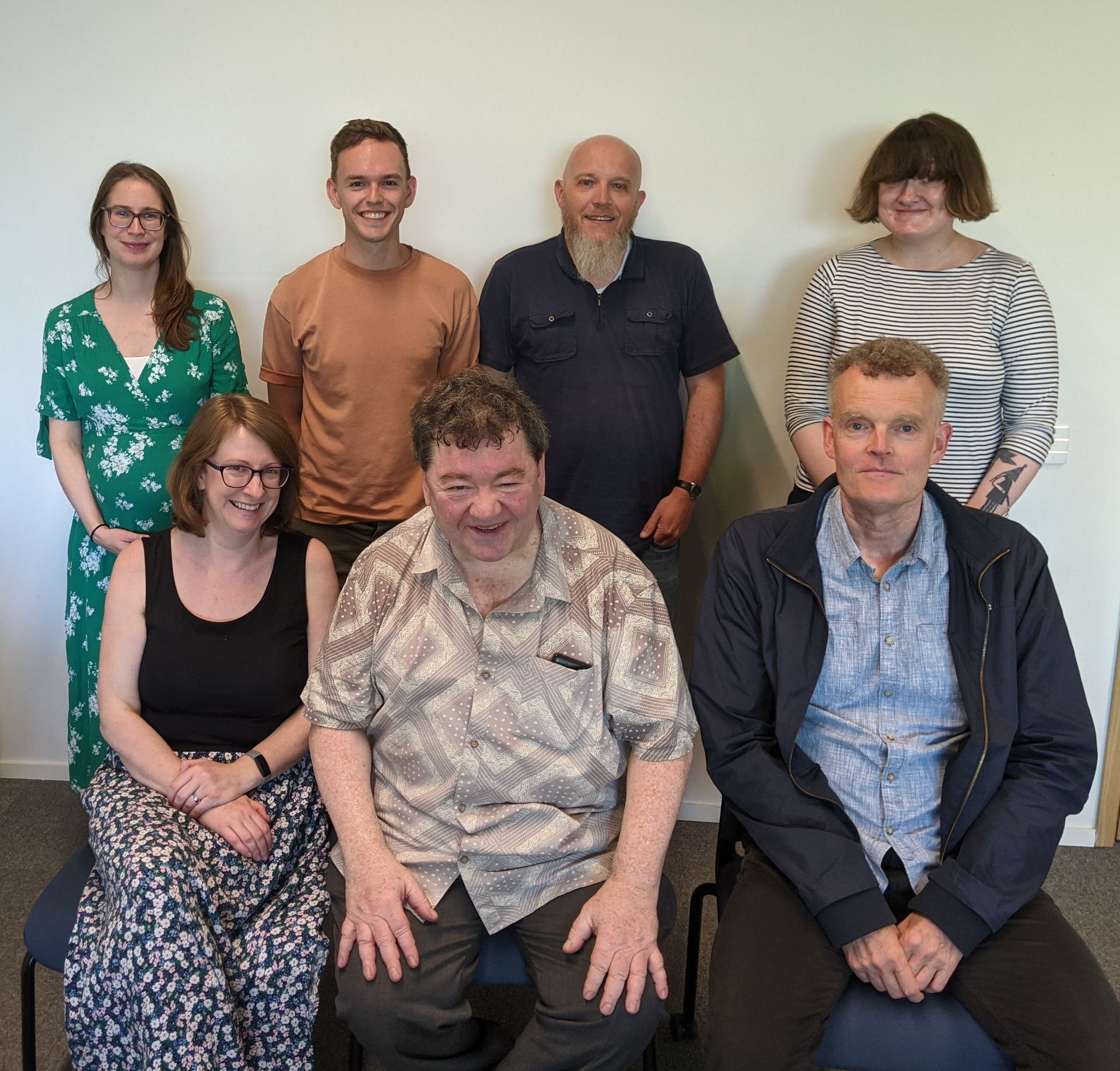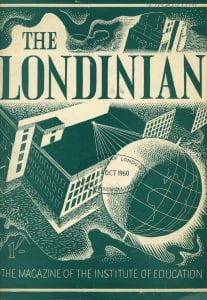Executive committee
Gary McCulloch is the inaugural Brian Simon Professor of History of Education at IOE and Director of ICHRE. He is currently leading the ESRC-funded project ‘The School Meals Service Past (SMS), Present – and Future?‘. Recent publications include The Routledge Encyclopedia of Modern Asian Educators (joint edited, Routledge, 2021), Transnational Perspectives on Curriculum History (joint edited, Routledge, 2020; paperback 2021) and The Cultural History of Education (general editor, 6 volumes, Bloomsbury, 2020). Earlier works include Cyril Norwood and the Ideal of Secondary Education (2007), The Struggle for the History of Education (2011), and Secondary Education and the Raising of the School-Leaving Age: Coming of Age? (with Tom Woodin and Steven Cowan, 2013). He is a past Editor of the Journal History of Education and current Editor of the British Journal of Educational Studies. He is past President of the British Educational Research Association (BERA) and the UK History of Education Society.
Dr Sam Blaxland is Lecturer in Education at University College London. He is interested in the history of twentieth century universities, students, social change, and political parties. Sam’s current project, Generation UCL, which he works on with Professor Georgina Brewis, involves researching two hundred years of student life in London in the build-up to UCL’s 2026 bicentenary. In 2023 Sam published Students Union UCL: A Short History. He specialises in oral history and has conducted over 200 research interviews throughout his career, many of which form the basis of the Generation UCL collection. Sam was previously at Swansea University, where he was a Postdoctoral Research Fellow from 2016–2020, and a Lecturer in Modern History from 2021 until the start of 2022. His postdoc project focused on the history of Swansea University, building up to its centenary in 2020 and culminating in a monograph, Swansea University: Campus and Community in a Post-war World, 1945–2020. His second monograph, The Conservative Party in Wales, 1945-1997 was published in 2024. Sam’s PhD and post-doc research coincidentally dovetailed with both the ‘Brexit’ referendum, and the 2017 and 2019 general elections, and as a result he was sucked into being a regular ‘talking head’, or political pundit on radio and television. He appears frequently on the television and radio and has done stints on BBC Breakfast, the BBC 6 o’clock News, BBC Radio 5 Live and LBC, as well as regular slots on BBC Radio Wales.
Dr Jennifer Bond is a Lecturer in Education at University College London. She is a historian of modern China and her research focuses on Gender, Education, Christianity and Diplomacy in the Republican era (1911-1949). Her book Dreaming the new woman: An Oral History of Missionary Schoolgirls in Republican China (OUP, 2024) explores the identity negotiations of Chinese girls who attended protestant missionary schools in early twentieth century. This research is based on extensive oral history interviews conducted with missionary school alumnae along with archival sources from China, UK, USA and Taiwan. Publications also include article in the Journal of Women’s History. Jennifer is co-founder of the China Academic Network on Gender (CHANGE), a transnational interdisciplinary network for researchers who are working on Gender Studies in China from humanities and social science perspectives.
Georgina Brewis is Professor of Social History. She is a historian of voluntary action, youth and education in modern Britain. Publications include Transformational Moments in Social Welfare: What Role for Voluntary Action? (Policy Press, 2021); Humanitarianism in the Modern World: The Moral Economy of Famine Relief (CUP, 2020); The World of UCL (UCL Press, 2018); A Social History of Student Volunteering: Britain and Beyond, 1880-1980 (Palgrave Macmillan, 2014). Georgina is Director of an ongoing British Academy Research Project (ARP) on voluntary sector archives Archiving the Mixed Economy of Welfare in Britain and in the run up to UCL’s 2026 centenary is leading Generation UCL, a research and engagement project exploring 200 years of student life in London. Georgina welcomes applications from postgraduate students interested in researching modern Britain and the wider world, particularly students and higher education, youth movements, volunteering and the voluntary sector.
Dr Vincent Carpentier is Reader in History of Education. He is an Associate Editor of the London Review of Education. His comparative research on the historical relationship between educational systems, economic cycles and social change is located at the interface of history of education and political economy. His current research explores the long-term connections and tensions between funding, equity and quality in higher education at both national and global levels. His publications include Système éducatif et performances économiques au Royaume-Uni: 19ème et 20ème siècles (L’Harmattan, 2001) and Global Inequalities and Higher Education, Whose Interests Are We Serving? (Palgrave MacMillan, 2010 – co-edited with Elaine Unterhalter) and articles in various academic journals. Vincent participates in several research projects of the ESRC/HEFCE Centre for Global Higher education (CEGHE) including “Higher Education Participation and Macro-Economic Fluctuations: An historical and comparative study”.
Mark Freeman is Professor of Social History and Education. He has published widely on modern British social, educational and business history, and has particular interests in adult education, informal education and youth movements. He was co-investigator on a large AHRC-funded project, ‘The Redress of the Past: Historical Pageants in Britain 1905-2016’. Mark has written articles in the English Historical Review, History Workshop Journal, Historical Research and the Economic History Review, among many other journals. He has a long-standing interest in rural and community history, modern British Quakerism, and educational settlements and centres. With other colleagues from the ‘Redress of the Past’ project, he is co-editor of Restaging the Past: Historical Pageants, Culture and Society in Twentieth-Century Britain, (UCL Press, 2020). Other project publications include Mark’s book The Pageants of St Albans: An Illustrated History, and the fully open-access Historical Pageants Local History Study Guide, both published by Regents Court Press.
Dr Laura Newman is a historian of medicine, science, and education currently serving on the EHRC-funded The School Meals Service: Past, Present and Future? project as a Postdoctoral Research Fellow. Before this she worked on the Addressing Health project at King’s College London and the Mobile Museum project at RHUL and Kew Gardens. Laura received her PhD from KCL/The Science Museum in 2018, which examined the role of the germ sciences in the British workplace from c.1880-1940. Laura’s first monograph Germs in the English Workplace c.1880-1945 was published by Routledge. She has published articles in the Historical Journal, The Social History of Medicine, the History of Education, and Paedagogica Historica on topics such as occupational health activism in the Post Office, school museums, and worker education in the British dairy industry. Laura has worked extensively in the museums and heritage sector, including posts at the Hunterian, the Florence Nightingale Museum, and the Science Museum.
Tom Woodin is Professor in the Social History of Education. He is the author of Working-class Writing and Publishing in the Late Twentieth Century (MUP, 2018). He led an ESRC funded project on the history of the school leaving age which resulted in a book, with Gary McCulloch and Steve Cowan, Secondary Education and the Raising of the School Leaving Age – Coming of Age? (Palgrave Macmillan 2013). He has edited Co-operation, Learning and Co-operative Values (Routledge 2014). He led a project for the Joseph Rowntree Foundation which resulted in Community and Mutual Ownership – a Historical Review. His other research interests include the history of education, the co-operative movement, the life and work of Brian Simon, and the social history of learning in relation to social movements.

 Close
Close



